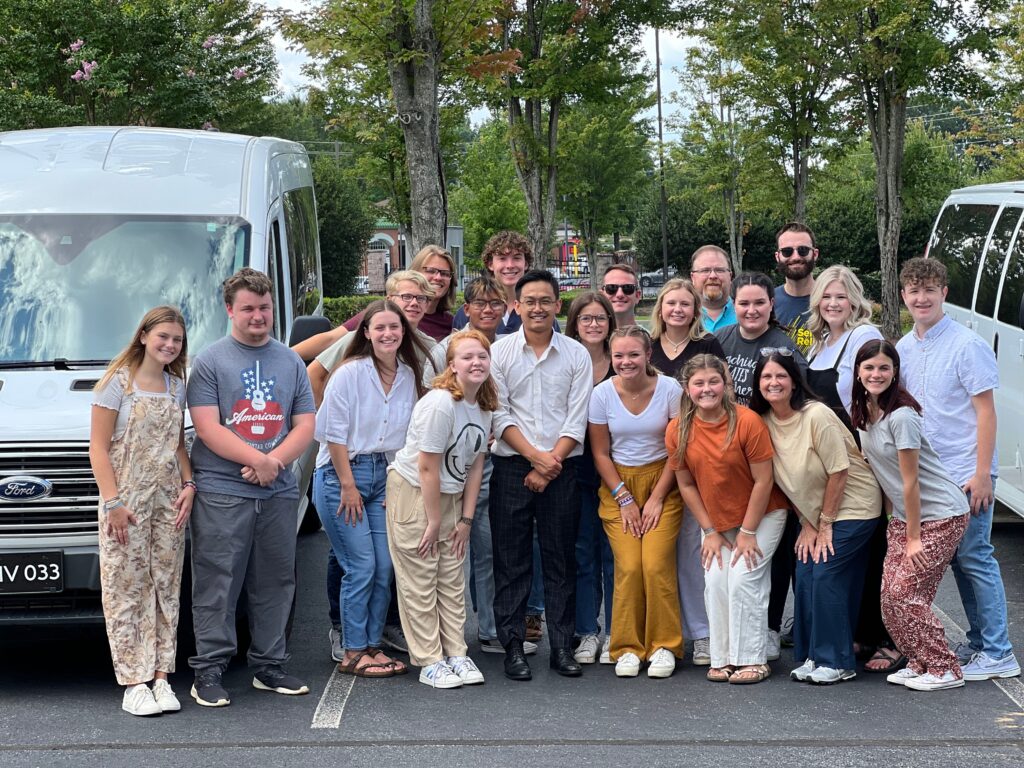Send Relief’s Atlanta Ministry Center, where I work as Outreach Coordinator, was created to work with and through local churches to serve former refugees in the United States.
But refugee ministry is not just another job in the land of opportunity.
For me, refugee ministry is personal because I was born in a refugee camp, grew up in a refugee camp and came to America as a refugee. Yes—I am also a former refugee, like many others in the numerous cities across the United States, like Clarkston, Georgia.
Since 2010, I have been conducting ministry with other former refugees who are new to this country, sharing the gospel of Jesus Christ and helping Western churches develop compassion toward refugees in their neighborhoods. With this background, working with Send Relief Atlanta has been my honor and joy.
As a former refugee, there are several things that I wish everyone could understand, but the most important one is how God uses former refugees to bless Western churches. Yes, I said how God uses former refugees to bless Western churches, not how Western churches bless former refugees.
There is a massive emphasis on how American churches come alongside refugees here in the United States, which is true, but I also believe that every church being obedient to the Great Commission is also being blessed.
Every year, Send Relief’s Atlanta Ministry Center receives about 30 different church teams from across North America. God is doing what He alone can do—calling His church to be about the Great Commission. I like to use the phrase “stepping toward experience” rather than “mission trip” for these church teams because they are coming here to learn how to step toward foreigners and strangers with the gospel.
On the first day of these experiences (mission trips), I take advantage of the fact that many teams do not know my story by asking them two crucial questions: “Why are you here?” and “What do you think about refugees?”
Most answer that they are here to help refugees, and refugees come here illegally.
I have heard that response from students, youth leaders and pastors alike.
As a former refugee, it used to break my heart.
I know it sounds unbelievable, but I like hearing that answer these days because of what we are doing here. Here’s why:
Mission teams usually come on a Saturday and leave on Friday. Not all, but most churches come here with that type of refugee mentality. Those churches never say they come here to learn about refugees, but by the time they leave, they have a completely different, more compassionate, more accurate opinion—both biblically and legally.
Why?
Because former refugees are also made in the image of God, we have a calling from God to have compassion toward them. Our team operates with this truth in mind.
There are many reasons why this is important, with the most important being that 1) it is essential to recognize the future of the Western Church is multi-ethnic churches, and 2) if that is the future, then we must intentionally train our congregations to be comfortable among “strangers and foreigners.”
Additionally, colleges and workplaces are becoming increasingly diverse, ripe places for cross-cultural missions opportunities. That means that we must train our congregations and youth to be globally-minded in their college campuses and places of work.
This is precisely why I love to witness the changes I see in many individuals on these mission teams that come to Clarkston! As a former refugee, I know I have walked paths where many people have viewed me as “other” or treated me in non-biblical, non-human ways. Now, I have the privilege of being a part of the work that God is doing to mobilize and teach churches to have biblical compassion toward refugees—this is the joy and honor of my life!
I don’t know about you, but I know personally as a pastor, missionary and former refugee, that these two groups desperately need each other. We should not be looking down on the other, but instead be co-laborers in God’s kingdom so that together we can see some authentic beauty of God’s Kingdom on this earth, as mentioned in Revelation 7:9-11.
God cares about His church, and He cares about not only why but also how His church reaches nations. Just here in Clarkston, we represent 92 unreached people groups, and we have over 100 different language-speaking people groups.
Yet our call is the same as before—not only to reach them outside of North America but also to reach them in our neighborhoods. Yes, church! As a former refugee, I can say that we need you, and yes, in God’s grace, church, you need us. Let us work together as co-laborers in God’s kingdom.
Published June 7, 2023
